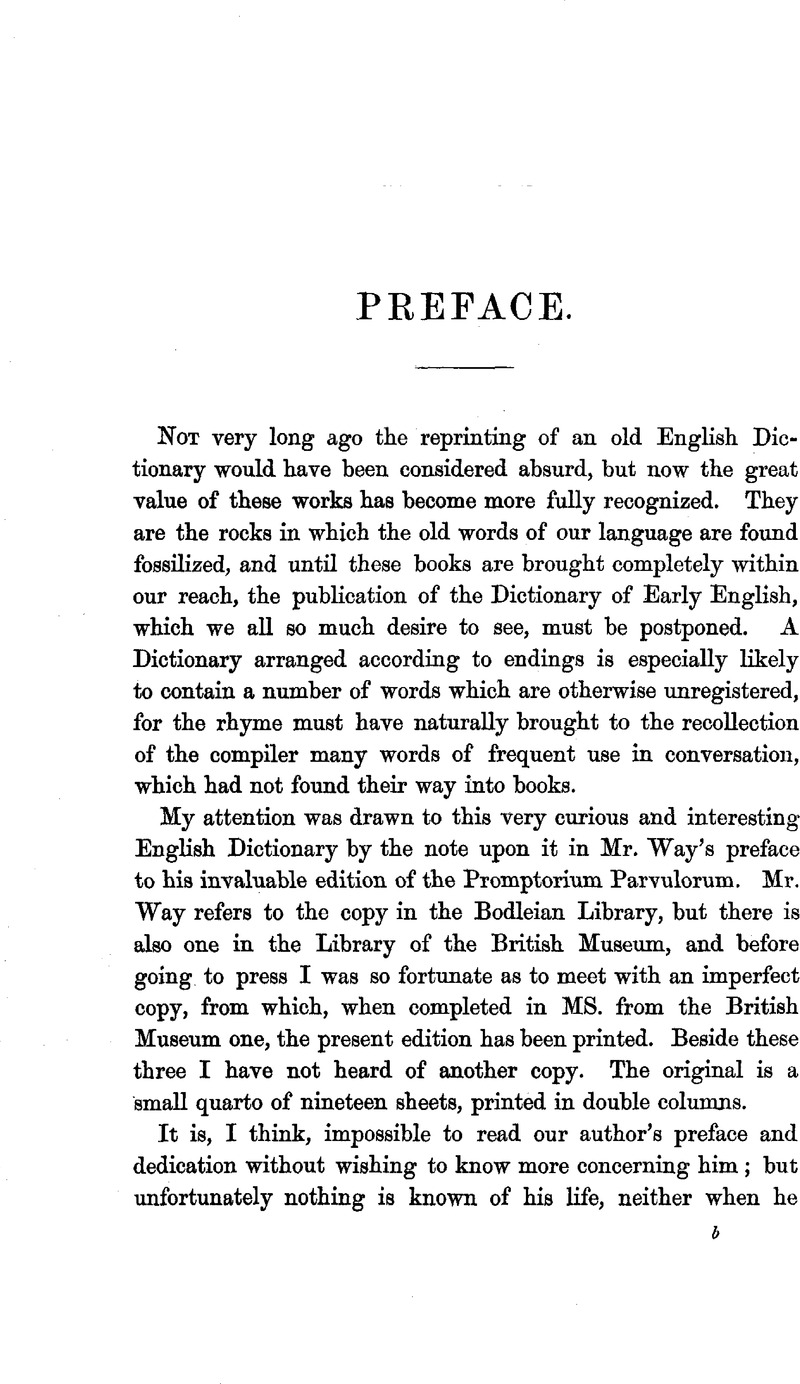No CrossRef data available.
Article contents
Preface
Published online by Cambridge University Press: 24 December 2009
Abstract

- Type
- Preface
- Information
- Copyright
- Copyright © Royal Historical Society 1867
References
page ii note 1 Wood's Athence Oxonienses, ed. Bliss, vol. i. col. 54
page iv note 1 Fuller's Worthies, ed. 1840, vol. i. p. 237.
page vi note 1 Mr. Furnivall has kindly supplied me with a few quotations in illustration of the pronunciation of some of these words :—
“He siketh, with ful many a sory swough,
And goth, and geteth him a knedyng trough.”
— Chaucer, The Milleres Tale.
Chaucer evidently pronounced enough as enow, for he rhymes it with bow and now—
“Adam lokede tho under woode bowgh,
And whan he seyh mete he was glad ynough.”
— The Cokes Tale of Gamelyn.
“And spending silver had he right y-nough,
Therof no force; I wol procede as now.”
—The Chanounes Yemannes Tale,
Skelton pronounced rough as row—
“Thow a Sarsens hed ye bere,
Row and full of lowsy here.”
—Poems against Garnesche, 1. 124 (Works, vol. i. p. 123).
In the next quotation it may either be ow or uff :
“The weather was cold and even roughe
The King and the Erle sate and loughe.”
—John de Reeve, st. 12 (Percy MS. vol. ii.).
In the following passage it is not clear what was Skelton's pronunciation of chough—
“The churlysshe chowgh
The route and the kowgh.” [a bird.]
—Phyllyp Sparowe, 1. 448 (Works, vol. i. p. 64).
The following quotation shows that tough and slough were pronounced ow ; plough frequently rhymes with inough in this poem:—
“I stode and behelde the bestis well drawe
To ere the londe that was so tough;
Than to an husbond I sed this sawe,
‘I pray to God, spede well the plough.’
By downe and by dale and many a slough ;
Therfore it is nedefull for to saye,
‘I praye to God, spede wele the plough.’”
—God ipede the Plough (Lansd. MS. 762, fol. 5. Skeat's P. PL's Crede).
The following two passages from Bishop Percy's Folio MS. show the pronunciation . of bryar and fryar—
“They cutt them downe the summer shroggs
Which grew both under a bryar,
& sett them 3 score rood in twinn
to shoote the prickes full neare.”
—Guy of Gisiborne, 1. III, vol. ii. p. 232.
“Thou cursed boy! cryed out the fryar,
heere I doe summon thee to appeare.”
—Fryar & Boye, 1. 400 (Loose Poems, part i. p. 24).




